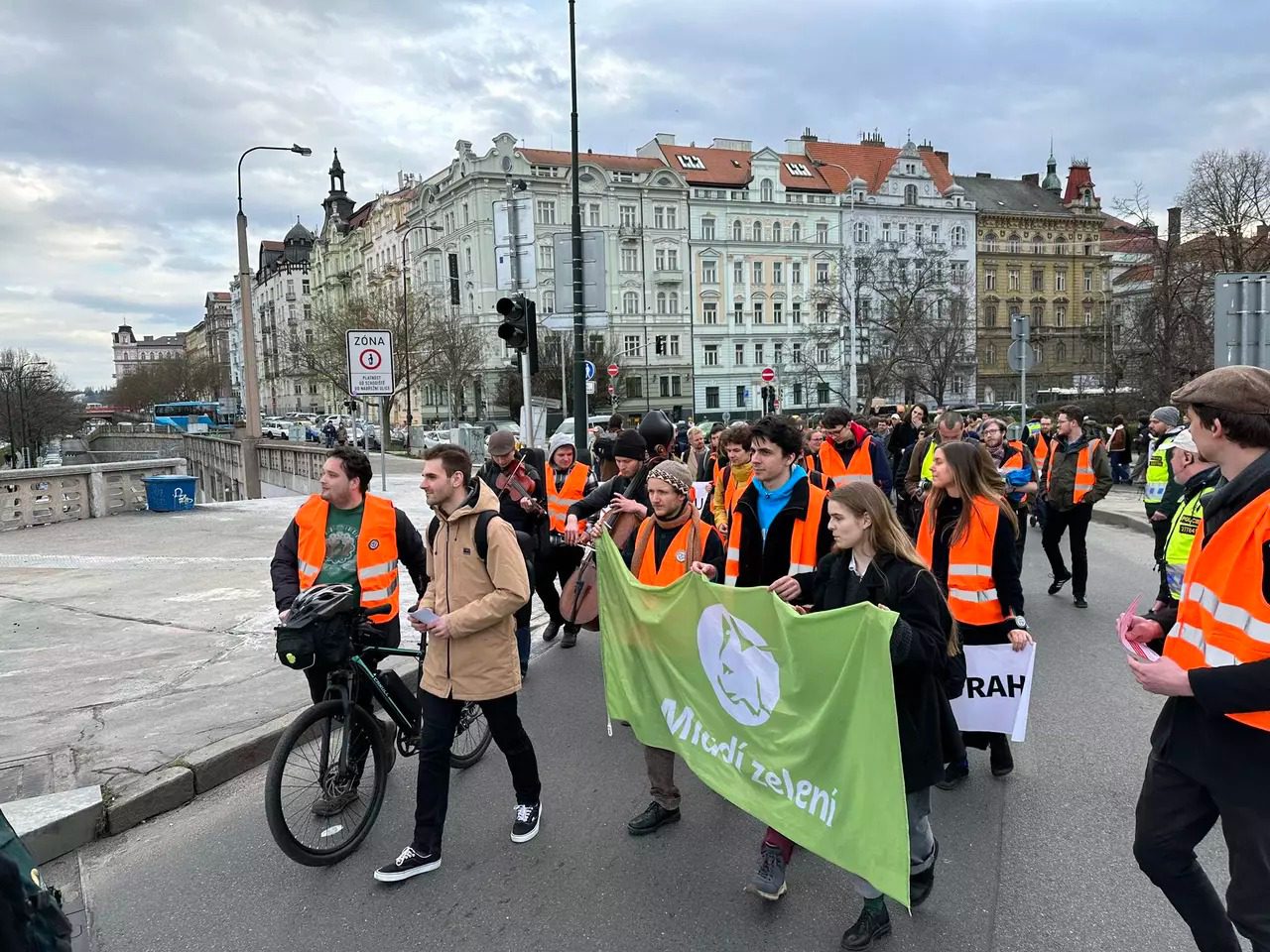Prague police warned of expected traffic disruptions in connection with the activists’ march demonstrating a speed reduction in the city to 30 km/h. This is already the seventh similar action, but the routes vary. The activists will start from Smíchov and continue through Ječná to the National Museum this time. The march has been duly notified.
“The march will start at 5:15 pm in Diezenhoferovy sady in Prague 5. Then it will continue over Jiráskův Bridge, Resslova, Ječná, I. P. Pavlova, Legerova to the National Museum,” said police spokesman Jan Daněk.
The police expect complications and advise drivers to avoid these places. During previous actions, activists partially blocked traffic. About 50 activists are participating in the march, along with approximately 10 opponents.
In the invitation to the march, the activists stated that by limiting speed, they want safer and quieter streets, fewer cars in the city center, fewer exhaust emissions and carcinogenic dust, and a safe space for cyclists and pedestrians.
The Last Generation initiative organized the protests under the name “30 for Prague.” It demands that politicians and the city leadership introduce a maximum allowed speed of 30 km/h in Prague.
Paris or Brussels have already done it. These metropolises have limited speed but also have bypasses built around them. Around Brussels, there is a highway ring road that connects several other highways, such as Ghent, Antwerp, Leuven, and Lille. Paris has an inner and outer ring road, so drivers do not have to enter the center. On the other hand, Prague has only the unfinished Prague Ring Road, the completion of which is out of sight.
Protests are duly announced to the city hall. The police do not agree with similar actions on backbone roads. The office assessed whether the notification has all the necessary features, complies with deadlines, and does not collide with other events.
“A ban on limiting traffic comes into consideration rather theoretically in a situation where the gathering blocks a certain area for a long time (depending on the situation, but certainly more than a few hours) and makes it impossible, for example, for citizens to access their homes, workplaces, etc., or long-term supply is impossible, and these needs cannot be met otherwise, such as by pedestrian access,” said city hall spokesman Vít Hofman.





